Insomnia happens to anyone regardless of their age. And it even can happen among children that have anxiety or health conditions. However, the older you become, the more problematic insomnia is.
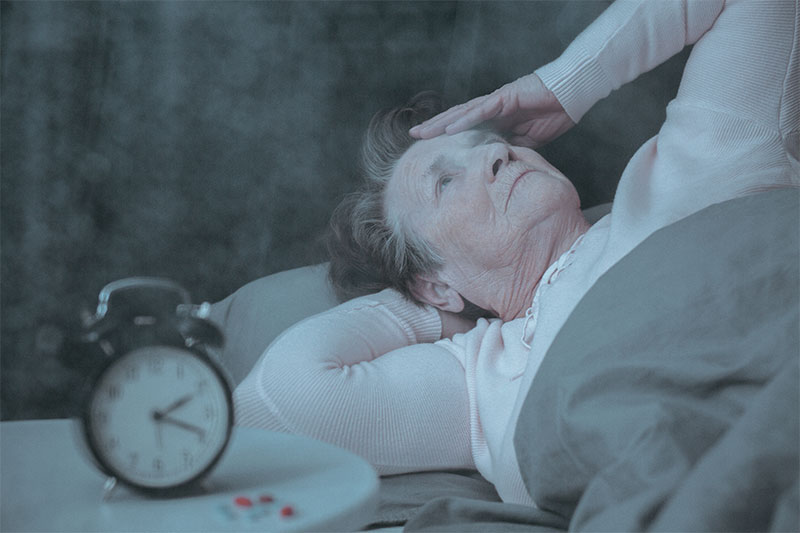
Insomnia is defined as the inability of falling or staying asleep and it becomes more common as you age.
Experts do believe that “normal aging” brings on some changes to sleep.
Basically, older adults tend to get sleepy earlier in the evening and tend to sleep less deeply than when they were younger.
So it’s probably not realistic to expect that as you get older, you’ll sleep as long or as soundly as when you were younger.
That said, although aging by itself does change sleep, it’s also quite common for older adults to develop health problems that can cause sleep disturbances. So when your older relatives say they aren’t sleeping well, you’ll want to help them check for these.
Less Melatonin Is Produced
Babies and young children produce the most melatonin which is why they can sleep easily even if they fight it. However, as you age, you are producing less melatonin which is a common reason that the elderly are unable to sleep as easily. There are foods that you can eat that can help boost melatonin levels. Those foods can help you sleep better.
Sleep Apnea
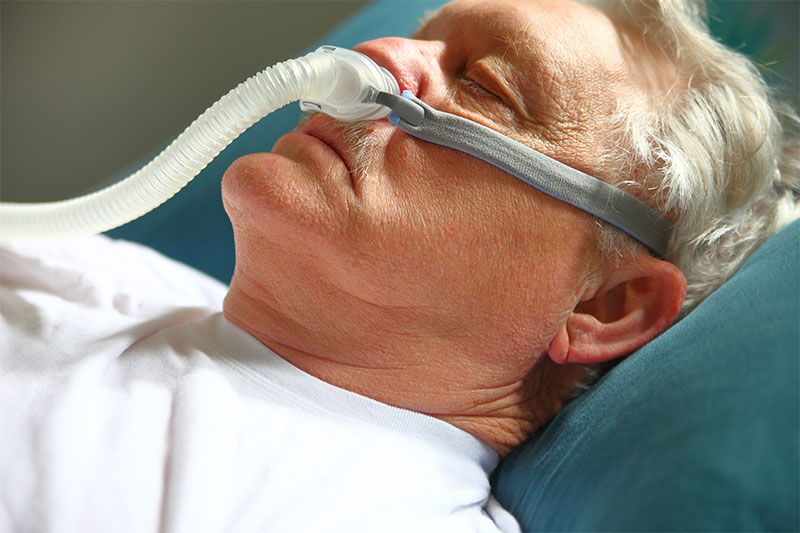
Many older adults have sleep apnea which can cause interruptions with breathing while sleeping and this causes loss of hours of sleep. Daytime drowsiness is a sign that sleep apnea is an issue. If you are finding this to be a big problem, you must see your doctor and get a sleep study done.
Snoring Can Worsen With Age
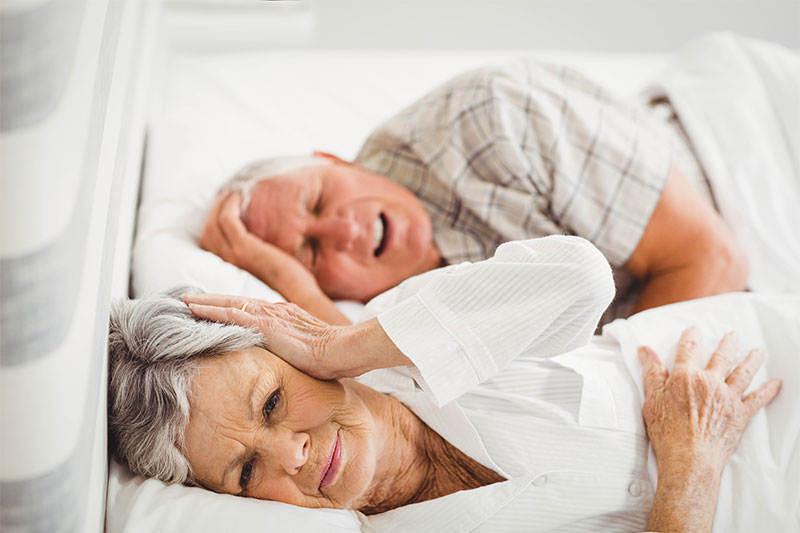
As you get older, you can begin to have problems with snoring and snoring can reduce the quality sleep that you get as well. You will also want to have a sleep study done if you are feeling quite drowsy in the morning and during the day. Weight loss is always recommended when it comes to reducing snoring.
Dementia Or Alzheimer’s Disease
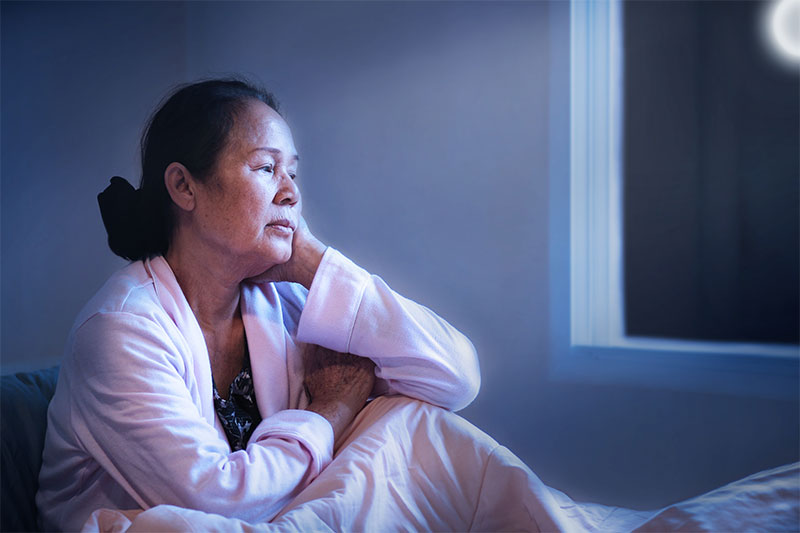
Dementia or Alzheimer’s onset will also interrupt the sleep cycle, and if there are signs of dementia such as forgetfulness and changes in behavior, then you have to see the doctor. Treatments can easily delay the progression of the disease.
Overactive Bladder
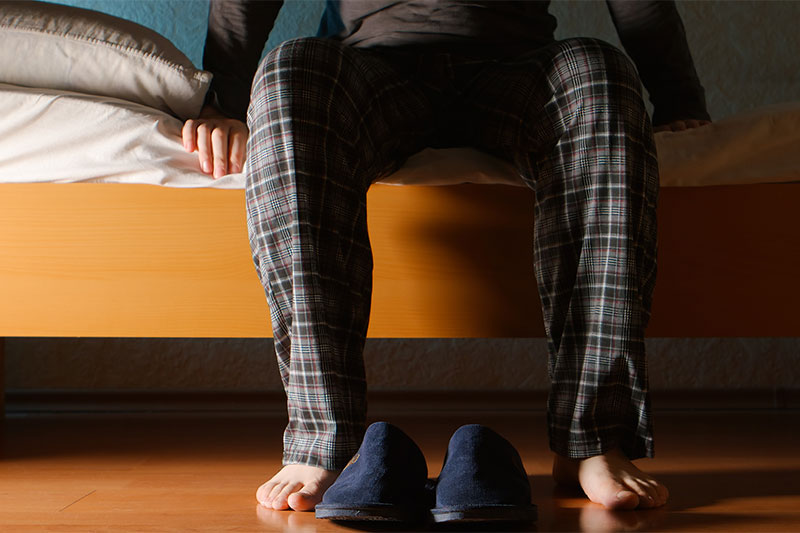
As you get older, your bladder becomes more overactive for a variety of reasons. Men can have enlarged prostates, and women can face this issue the closer they reach menopause and after menopause. If you are having to take too many trips to the bathroom in the middle of the night, then that in itself will interrupt your sleep.
Gastroesophageal Reflux (GERD)
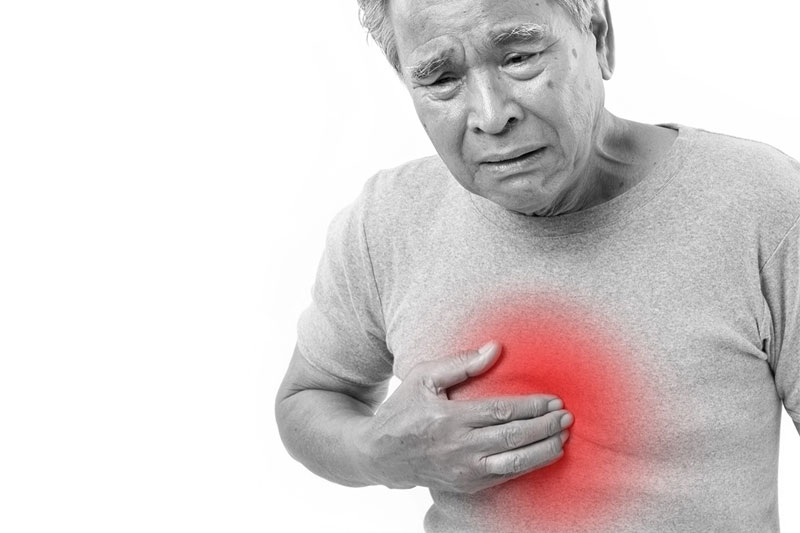
As you age, you are more likely to suffer from GERD and that will keep you up at night which is heartburn and acid backing up into your mouth. You will want to eat lightly in the evenings and only stick to light snacks within three hours of going to bed. Antacids will help as well to keep it at bay.
Heart And Lung Conditions

If you have cardiovascular disease or lung problems such as COPD, it makes it harder to breathe and to stay comfortable. And the effects of these ailments can easily keep you up at night. If you are finding that you are having trouble breathing especially at night, you need to get checked by your doctor.
Restless Leg Syndrome (RLS)
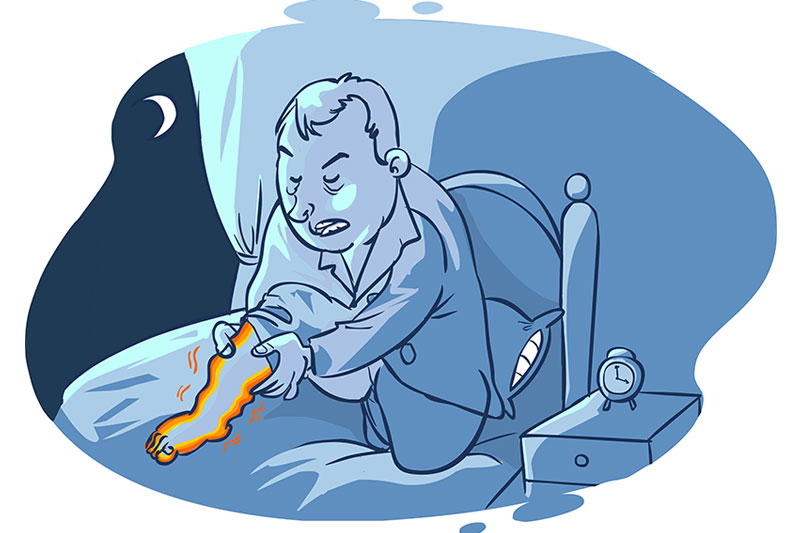
If you have RLS, you will feel a sensation of crawling and itching as you attempt to fall asleep and this is quite common as you age. This can be caused by depression, anxiety, and low potassium levels contribute to RLS as well. If you are struggling with RLS, you can get medications for it.
Periodic Limb Movements Of Sleep (PLMS)
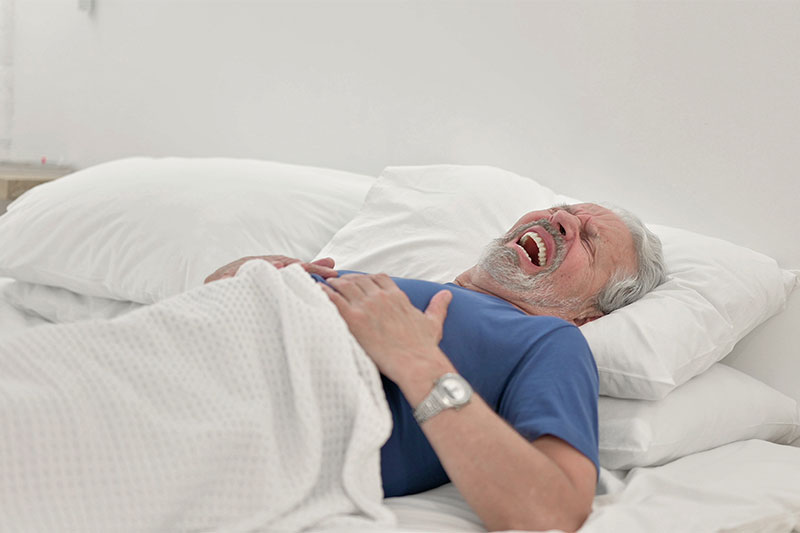
PLMS happens when the lower limbs such as the toes, ankles, and even the hips are twitching as you fall asleep which can cause you to awaken and not fall asleep for a while after. Unfortunately, there are no effective treatments for PLMS and this condition does happen among older adults more than younger adults.
Anxiety And Depression
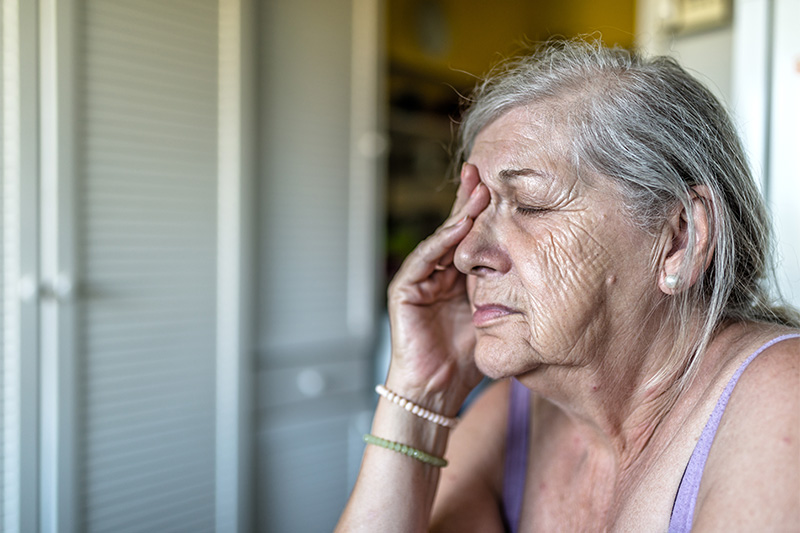
Anyone can suffer from anxiety and depression but these mental health conditions can worsen as you age. And if these are keeping you up, then medication that does not include insomnia as a side effect can be helpful.
You may end up wanting to start on sleeping pills, but you want to be very careful if you go down that route. They are addictive and you can easily become worse off with sleeping pills. You are best to take natural supplements to help promote sleep, eat foods to help you sleep, and try meditation exercises.


